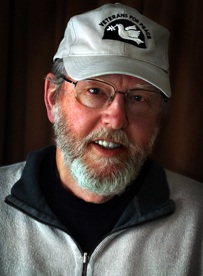Our hypothetical young soldier really has no idea why these strange little men want to kill him. But there is no question that's what they want to do and what they are definitely trying their best to do. He sees friends die in mud and agony. He sees civilians and children cut down and burned up. He kills his share of the enemy, either at some remove or, maybe, up close and very personal. Maybe he accidentally kills civilians. He does this for a year and survives. Then he's flown back home to what we liked to call "the world."
But, somehow, it's not the same.
Something inside this hypothetical young man has changed. There's a fear he never had before, an intense state of hyper-vigilance. Maybe there's flashbacks -- sudden viscerally re-lived moments of some horrific ten-seconds of combat that were never fully integrated into the memory banks.
Again, this is hypothetical. Every criminal case is unique and must to be treated as such.
My point is this: What responsibility does the society that sent this young man to Vietnam bear for what it asked him to do and how that experience may have affected him? There is no need to declare whether a war itself was good or bad to understand that bad things can and do come of war.
In the abstract, one can argue that Life itself is a corrupting influence on all innocent human beings. None of us get out of life alive. And I dare say none of us get out of it morally unsullied.
Thus, there is the notion of mitigation in sentencing. All lawyers understand this. The point is actually, realistically to incorporate it into the criminal justice system -- and if necessary to apply it retroactively, if it was not applied when it should have been applied in the past.
The system is saying, we're not letting you totally off the hook, but we have learned enough to understand we share some of the culpability for the crime in question. Our war messed you up and we are recognizing that fact.
Recognizing Honor and Bravery in war should never be dismissed or diminished. But, likewise, the horrors of war and its corrupting influence and the pain and suffering it causes should also not be denied or diminished. Society needs to step up and assume some responsibility.
So, to wrap this up, my experience over the past 40 years has been to oppose our wars as essentially unnecessary. Again, good Americans will probably be arguing these matters until we're old and feeble.
What I would like to see in official circles is less cover-one's-ass partisan thinking in this area and more sensitivity to the unpleasant moral realities of life -- and a recognition that war is really less about glory than it is about causing pain and suffering.
Finally, it seems to me, a society can be fair and just and politically conservative. But it cannot be fair or just if it precludes redemption and forgiveness.
Thank you.
Introduction given before the speech:
John Grant was raised in a conservative family in South Florida. He served in Vietnam, then attended Florida State University, majoring in creative writing. During the 1980s, he made a number of trips to Central America as a documentary photographer and showed his work in the Philadelphia area. He returned to Vietnam in 2002 to film an 80-minute documentary called "Second Time Around" about a wounded veteran living and working in Saigon. It was shown at the Maine International Film Festival. In late 2003 and 2004, he made two trips to Iraq, the latter trip as a cameraman for a documentary film. He has published op-eds in The Philadelphia Inquirer and Daily News. He now writes for the on-line publication This Can't Be Happening.
(Note: You can view every article as one long page if you sign up as an Advocate Member, or higher).




